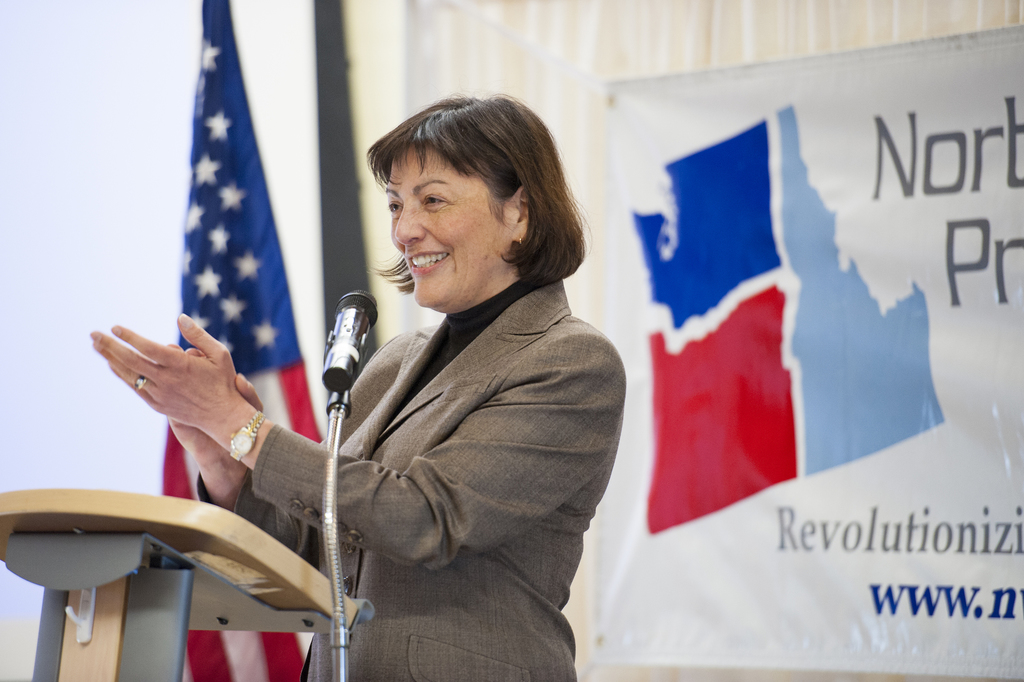For years, our team at the Northwest Progressive Institute has been calling on our state and federal representatives to increase funding for geologic hazards research and require public agencies to gather the data we need to better understand the risks that we face from landslides, volcanoes, lahars, and tsunamis.
Today, the United States House of Representatives answered the call, at least in part, by passing H.R. 1261, the National Landslide Preparedness Act.
Sponsored by Representative Suzan DelBene, who represents NPI’s home congressional district (Washington’s 1st), this bill would advance our understanding of the geology behind landslides and make funds available for emergency preparedness programs pertaining to landslides.
Here’s a synopsis of the bill from congress.gov:
This bill directs the U.S. Geological Survey (USGS) to establish a National Landslide Hazards Reduction Program to identify and understand landslide hazards and risks, reduce losses from landslides, protect communities at risk of landslide hazards, and help improve communication and emergency preparedness.
The USGS shall, among other things:
- develop and publish a national strategy for landslide hazards, risk reduction, and response in the United States (including territories);
- develop and maintain a publicly accessible national landslide hazard and risk inventory database;
- expand the early warning system for debris flow; and
- establish emergency response procedures for the rapid deployment of federal scientists, equipment, and services to areas impacted by a significant landslide event.
The USGS may provide grants to research, map, assess, and collect data on landslide hazards.
The National Science Foundation may provide grants to eligible entities for landslide research.
The USGS (1) shall establish the 3D Elevation Program and the 3D Elevation Federal Interagency Coordinating Committee, and (2) may make grants and enter into cooperative agreements to facilitate the improvement of nationwide coverage of 3D elevation data.
We can’t think Representative DelBene enough for her tremendous work on this bill. Thanks to her leadership and dedication, we’re one step closer to getting more funding for geologic hazards research. This is a great victory for Cascadia.

“This victory has been a long time coming for the victims, families, friends and the entire Oso community, and honors our commitment to do everything possible to ensure we have the tools to help prevent these types of disasters,” said Representative DelBene in a statement following passage of the bill.
“None of us will ever forget March 22, 2014, when a tragic landslide took the lives of 43 people and wiped out homes, businesses and roads. Today’s passage of this legislation allows us to make significant progress in landslide science and will allow communities to be better prepared for when landslides do occur. I look forward to the Senate following suit and passing this bill,” DelBene added.

The House passed H.R. 1261 on a voice vote, which means there is no roll call to share and the bill did not attract significant opposition.
Senator Maria Cantwell has introduced companion legislation in the Senate.
“I know first-hand the monumental impacts our community was challenged with during the 2014 Oso landslide,” said Darrington Mayor Dan Rankin.
“In just over two minutes, we lost forty-three of our family, friends and neighbors, we lost our main highway, our ability to communicate beyond the slide via phone or internet, and medical services,” Rankin recollected.
“Prescription services and transactions were also not available. This is just the tip of the iceberg of the immediate impacts of this one event. The legislation that Representative DelBene has brought forward may not prevent another Oso slide but it gives communities like Darrington data that we can use to make important decisions about land use in hazard areas, response from our emergency services, and redundancy in infrastructure so precious time is not lost in a time of need.”
Mayor Rankin is correct. If we don’t understand the science behind slides like the one that swamped Oso five years ago, then we won’t be able to save lives and property before the next slide hits. That’s why it’s crucial that this legislation be passed and signed into law. And at the state level, the Washington State House and Senate need to give our Department of Natural Resources the funding they’ve been asking for to study slides in the upcoming supplemental budget.

